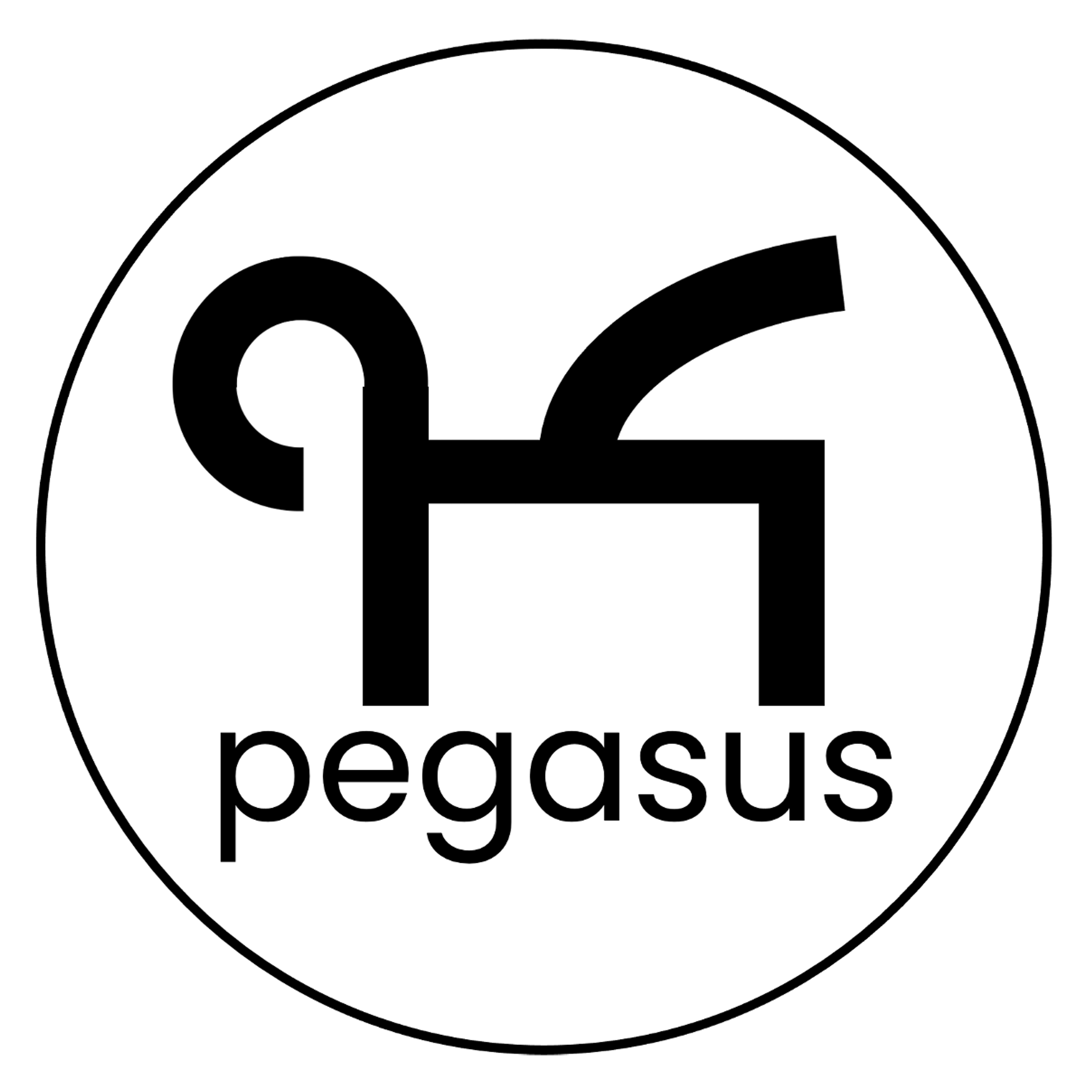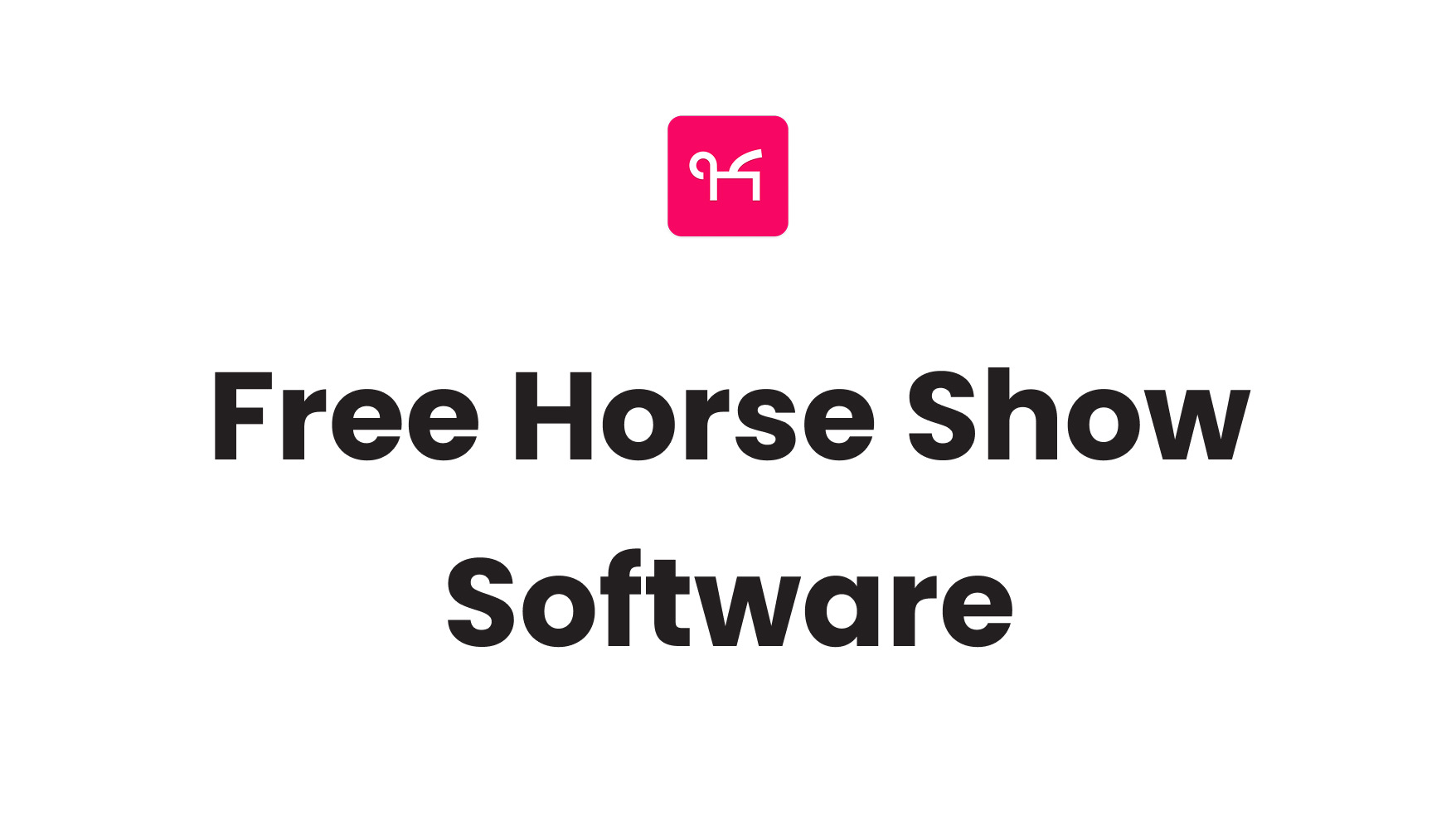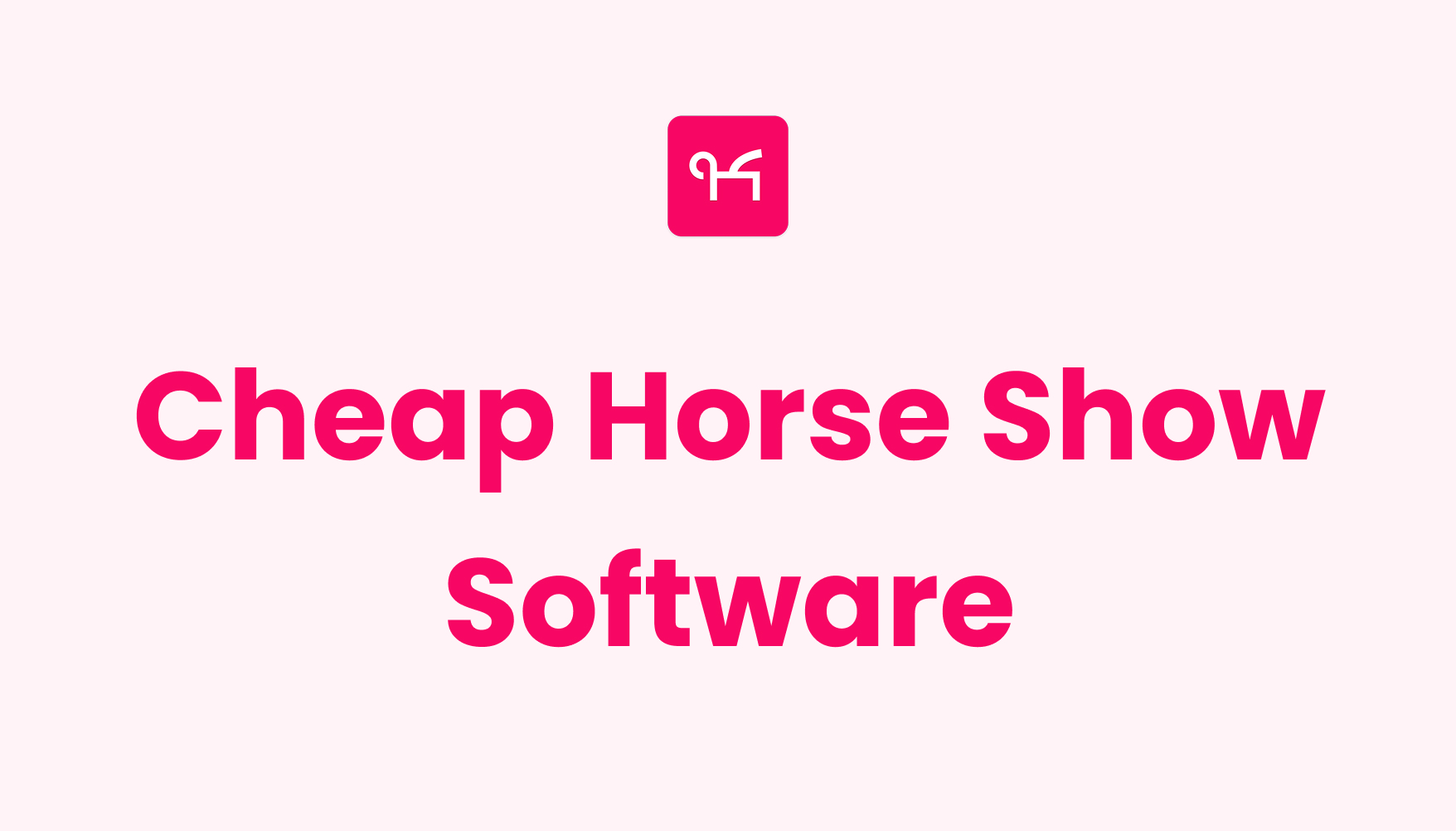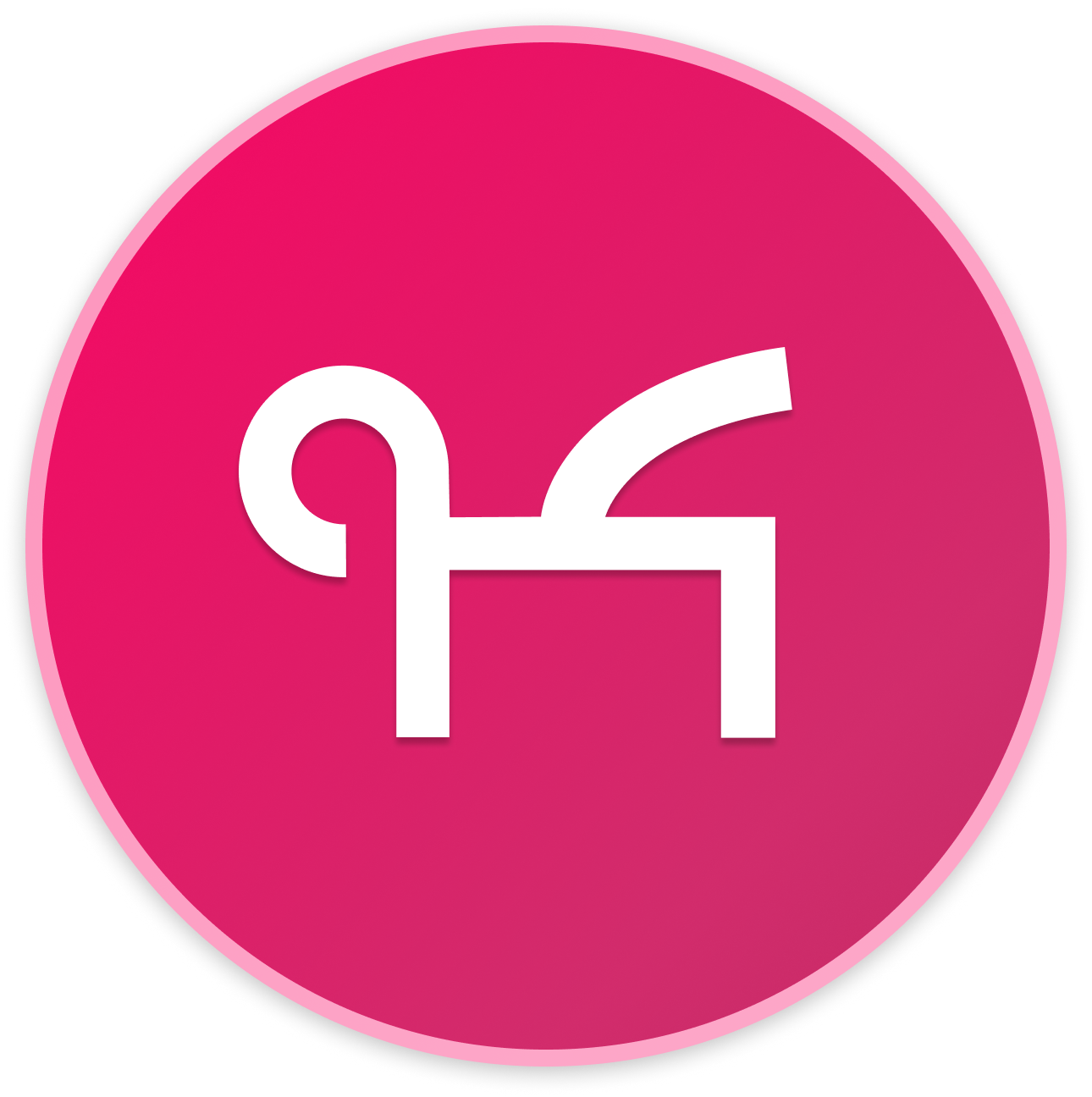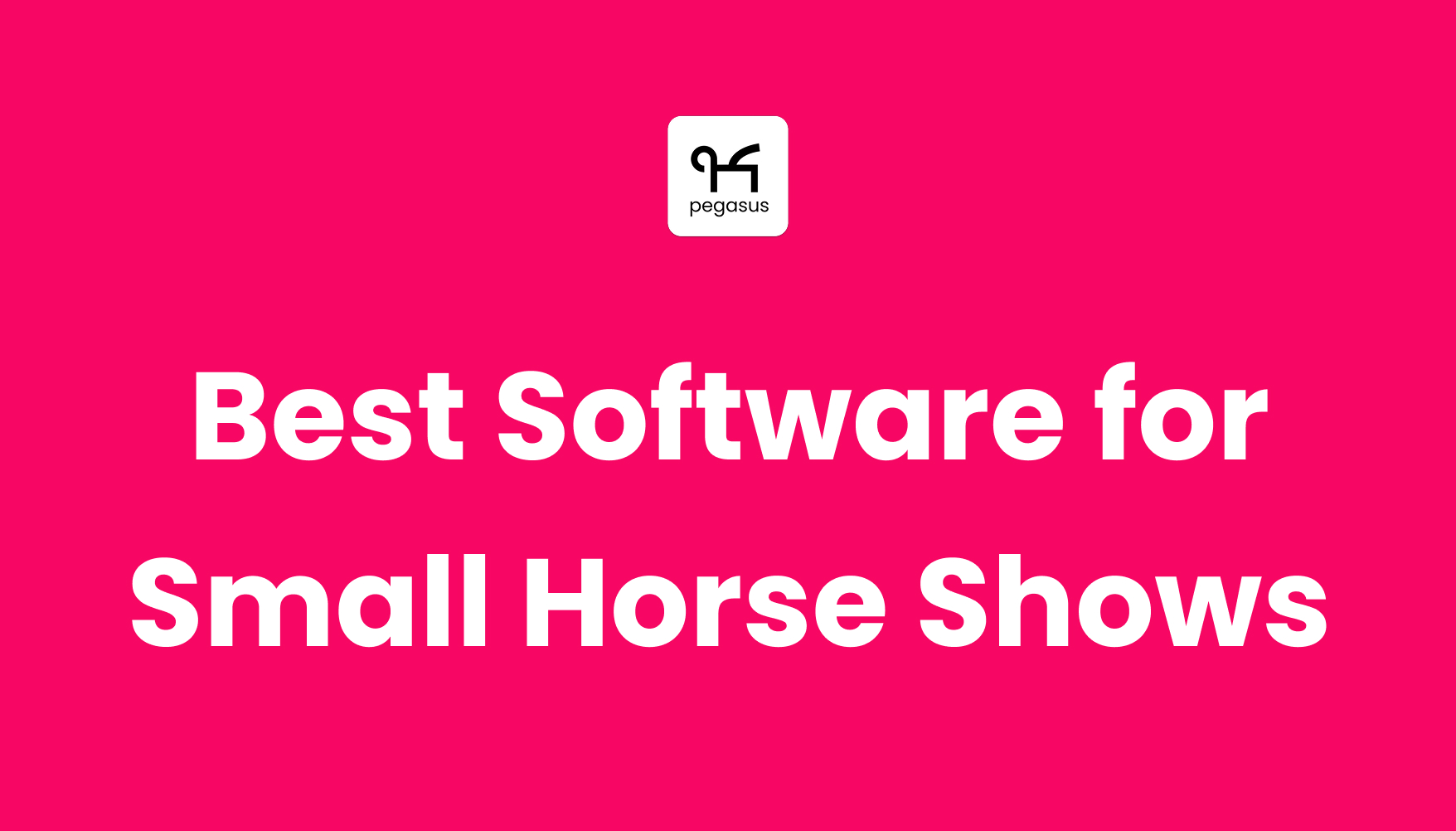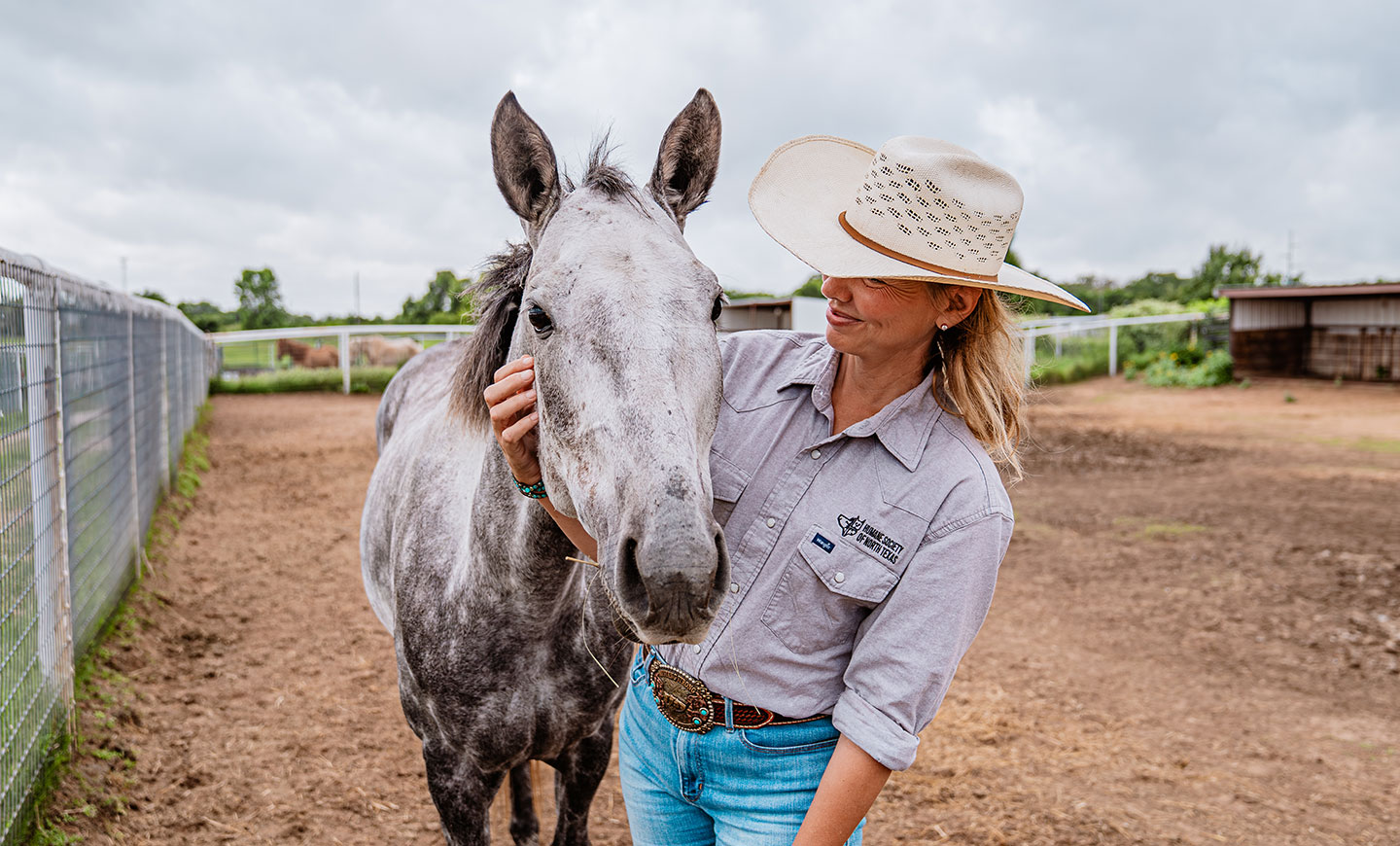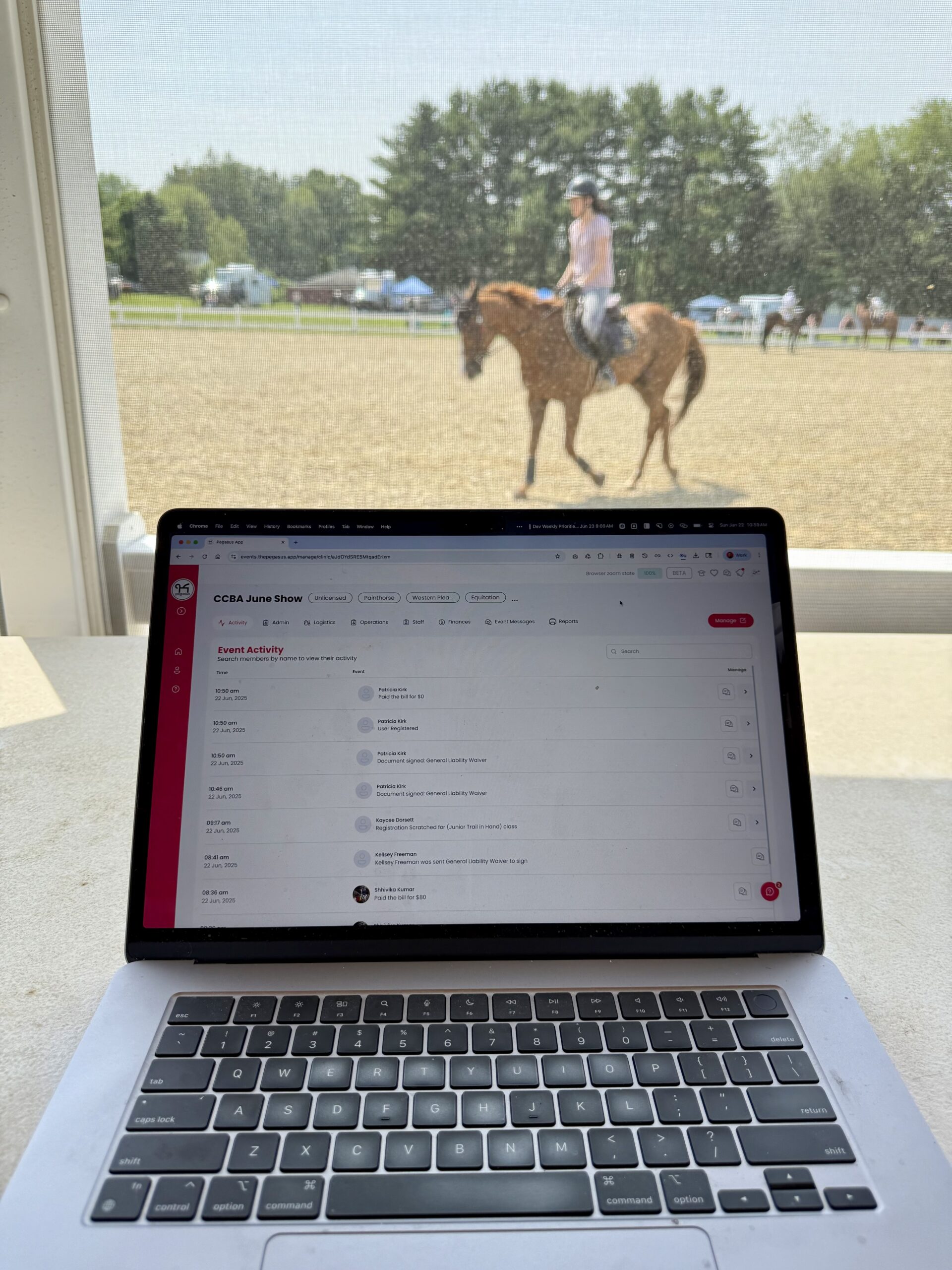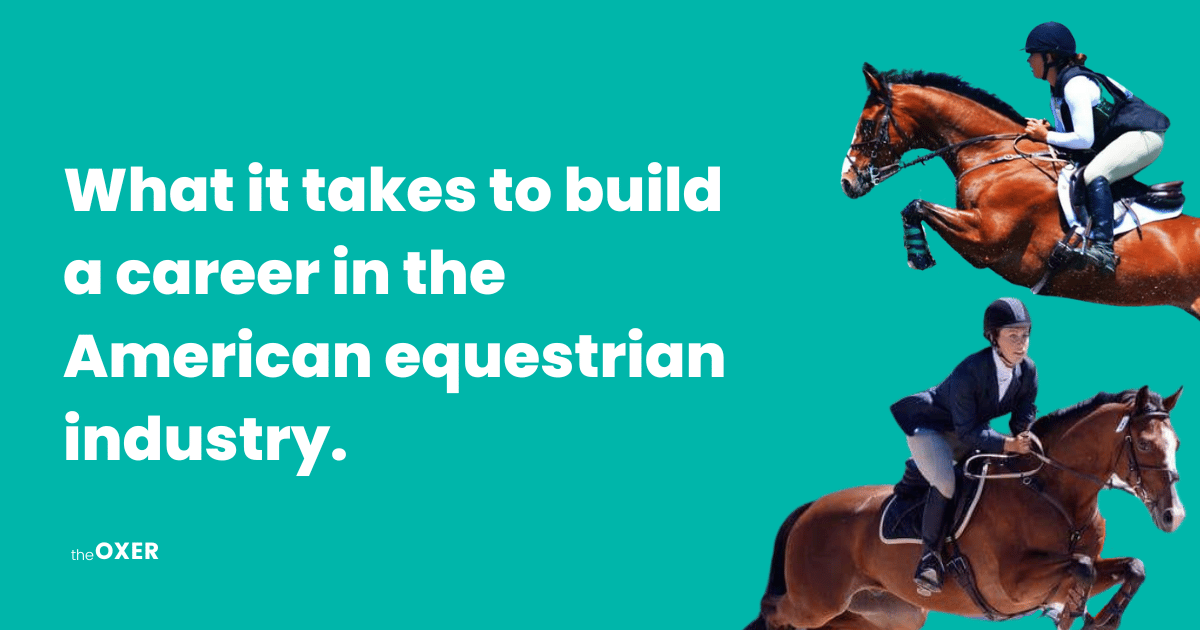
Hey there, partner. This is The Oxer by Pegasus. The newsletter that takes you out of your tack room and into the global equestrian industry.
In today’s edition, we’ve got something special for you.
Noah (CMO of Pegasus who writes The Oxer) spoke with Kaitie Veltkamp and Croix Darwin, recruiters for equine-related jobs at Equistaff, and the conversation is the theme of today’s edition.
Kaitie, Croix, and Noah spoke through a myriad of subjects, such as how there are many more white-collar jobs in our space than we realize to why job hopping is such a thing.
Note that the interview is long, at least a few thousand words that would take some time to read and enjoy it.
But instead of shortening the interview—as we believe in the power of strong journalism—we decided to give you, the reader, two options to choose from.
Therefore, today’s edition will be divided in two. The first part will be a summary of the interview in a few hundred words or less. The second part is the entire interview.
Before we get into it, have you signed up to try out Pegasus’s beta?
If not, head to Pegasus, click “get early access,” and sign up today!
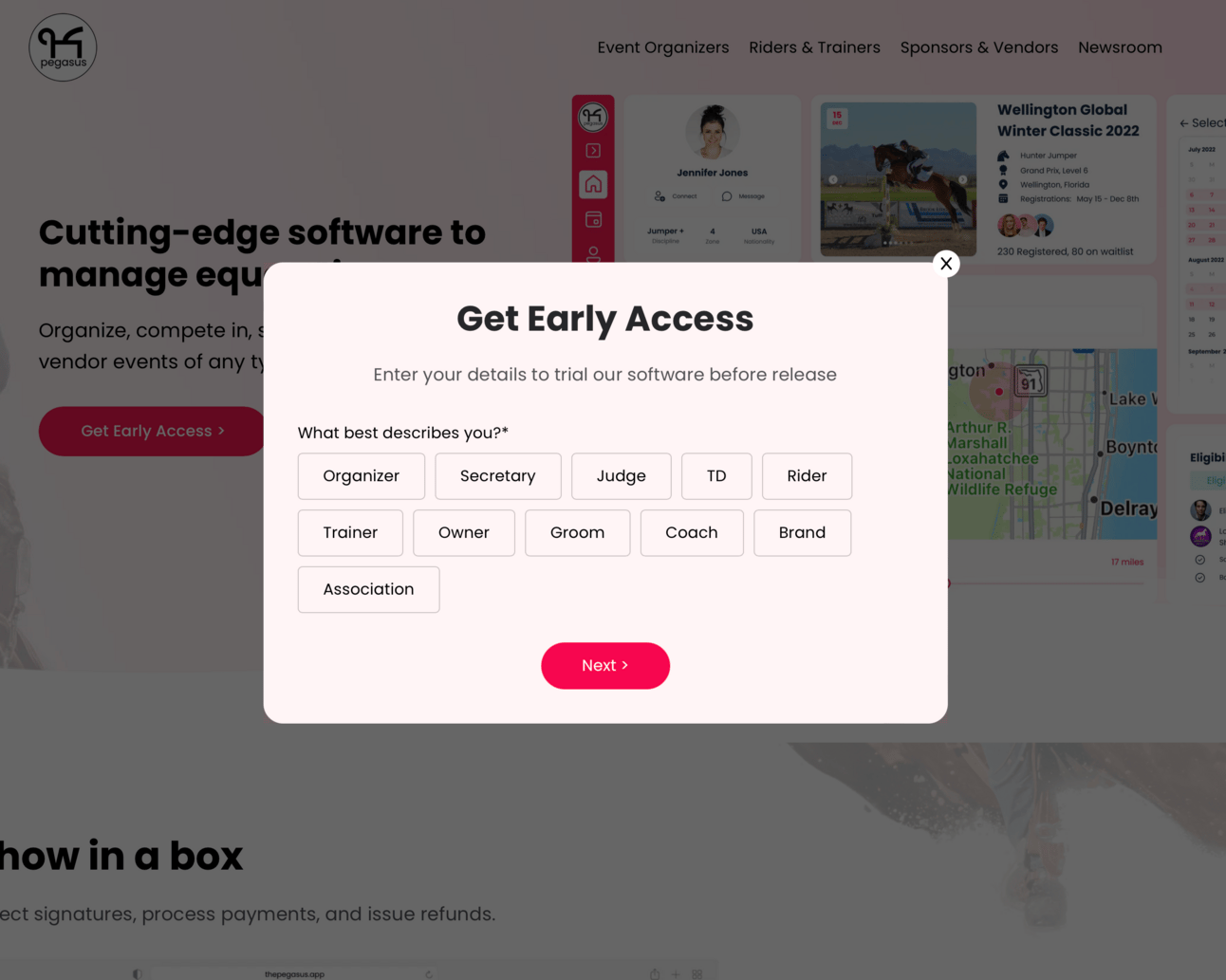
Saddle up for a short or long read!
🩳 The Shorter Read
Equistaff is a job board and recruiting company that specializes in the equine industry.
Croix and Kaitie believe that there is a lack of awareness of white-collar jobs in the equine industry, despite their existence. Many people do not know that these jobs exist, and companies often do not publicize them. This is due in part to the fact that there are a lot of underqualified candidates applying for these jobs.
They also believe that companies can take the transferable skills of equestrians more seriously.
Another challenge that Equistaff faces is that there is a rise of freelance work in the equine industry. This is due to problems posed by full-time jobs as less workers are willing to deal with them. Companies can improve on the management and leadership front to potentially boost employee retention.
Additionally, Kaitie and Croix are frustrated by the number of employers who have a “no horse policy”. They believe that this is doing a disservice to the industry by missing out on a great pool of deserving, passionate young people.
Finally, they believe that the industry needs to develop a groom training program to help those who are in blue-collar roles in the public sector learn equine-related skills.
🏇 The Full Interview
Noah: Equistaff has been around for quite some time as a job board. Can you tell me about what led to the decision to get into recruiting?
Kaitie: So actually recruiting has always been something Equistaff has offered, we just focused more on the local community, and more on the temporary/hands-on positions—grooms, landscapers, seasonal sales professionals, etc.
On occasion, I’ll make a call to a farm owner or foreman of a large facility and hear, “Mary got me set up with these people 20+ years ago!” And it’s absolutely amazing!
When I started here two years ago, we were coming off a lull—just didn’t have the right, motivated people behind the brand—and I had a bit of a personal mission to try and promote the best employers and jobs in the industry so no one would have to work for “those” employers. You know, the ones who make up the nightmare stories and drive passionate people out of the industry.
So while I was looking for the “cool” jobs, I really began taking a look at the industry beyond the stables, and it opened my eyes to how many levels and how much diversity really exists in the equine industry!
So I decided to start reaching out to these “out of the box” opportunities, and we’ve been evolving ever since.
I won’t lie, as two horse girls turned recruiters there’s a bit of “making it up as we go” but we all have a love for the horses in common, so that’s made it easy.
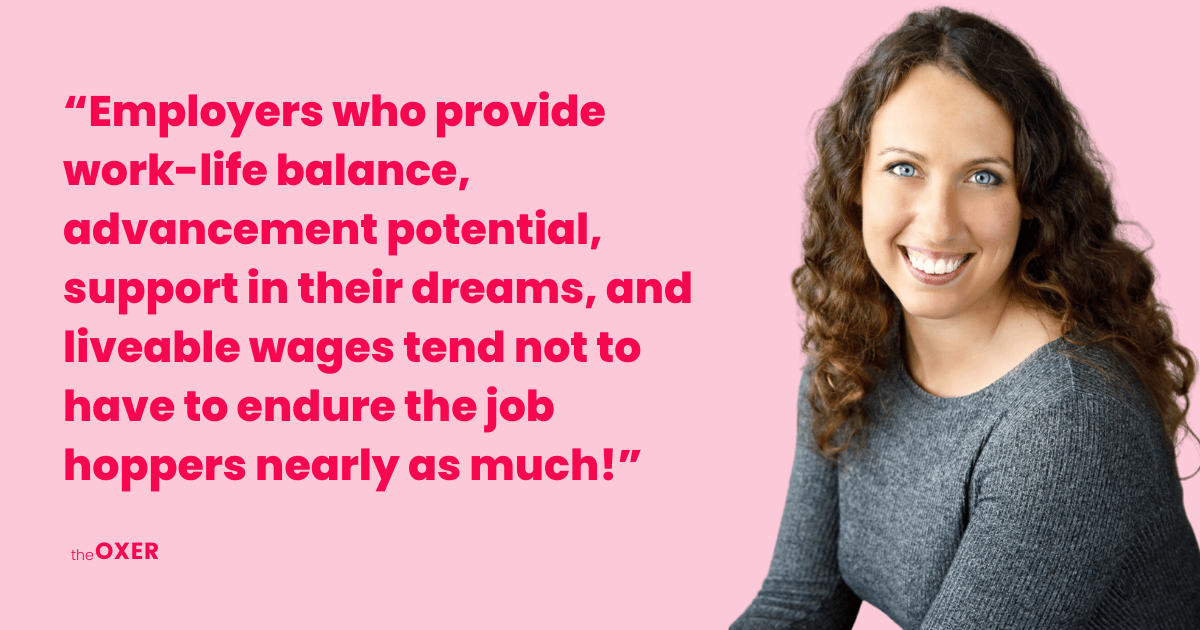
Noah: What does the industry look like beyond the stables?
Croix: Just a few expanded possibilities: pharmaceuticals, sales for feed, tack, medical or equipment, startups, marketing, brand design, directors, controllers, equestrian resorts, show venue management and staff, equestrian governing bodies, insurance, HR, boards of directors, 501c3s, even fully remote and hybrid roles.
It’s absolutely unimaginable the amount of possibilities.
Kaitie: Exactly, growing up, and really until I took this job, I only ever thought of the positions we see every day…trainers, vets, farriers, grooms, riders.
But there’s a facet of the equine industry for just about every skill set out there.
Croix: “Boots on the ground” roles are where most young equestrians end up heading when we could be developing young horse-passionate people for the additional skills and roles out there for the taking.
Noah: Is there a high level of awareness for such opportunities?
On The Pegasus Podcast, we’ve discussed before that white-collar jobs are elusive in equestrian, for example. But according to you, white-collar jobs do exist, such as in insurance and startups, among others.
White-Collar Jobs in Equestrian. – The Pegasus Podcast
Have you noticed that the equestrian industry is more “boots on the ground” than most other industries you hear about? Hearing the word “industry” itself might allude to an ofice building in the downtowns of London or Barcelona.
pegasuspodcast.buzzsprout.com/1755973/13635934

So does that mean that they exist but people aren’t aware of them? And if this assumption is true, why do you think that’s the case?
Croix: There is zero awareness. It’s a very small sector of people who qualify and additionally know that corporate roles in the industry even exist.
They are definitely not elusive in quantity, but they are not marketed either. I personally believe a major reason for that is due to the quantity of underqualified applicants that end up almost breaking the Internet to apply for a job that they are underqualified for.
There is a bit of a crisis in modern staffing of not reading job descriptions fully.
So the companies are trying to save time and energy with their HR teams by not publicizing the roles.
Additionally, they are using non-equine staffing agencies to fill roles with non-equine professionals, and thus struggling in the long term due to lack of equine experience. I’m sure Kaitie can add to this.
Kaitie: There are three big hindrances out there for more corporate-type roles.
I think in large part people in the equine community, especially young ones, don’t know they exist.
I think companies have a tendency to not take the “transferable skills” of a well-rounded equestrian seriously—for the more entry-level roles, at least—because they are using recruiters or internal staffing agents who don’t realize what the equine background brings to the table, and in far too many instances it’s still a game of “it’s not what you know, it’s who you know” and they just tend to rely on local word-of-mouth networking to source their candidates rather than ever engaging in a formal search.
Croix: One final thought on this question is a bit outside the scope of equine recruiting, but as a whole white-collar roles tend to be more challenging for HR teams to tackle.
If they announce the role is open it brings up workplace tension and questions that may not even be necessary. I know Kaitie and I have seen these caliber roles hiring secretly without even announcing the roles publicly to avoid those potential tensions among employees or the public.
Equistaff works to keep our clients confidential through the initial screening process to help aid in those transitions to keep them as smooth and stress-free as possible for all parties.
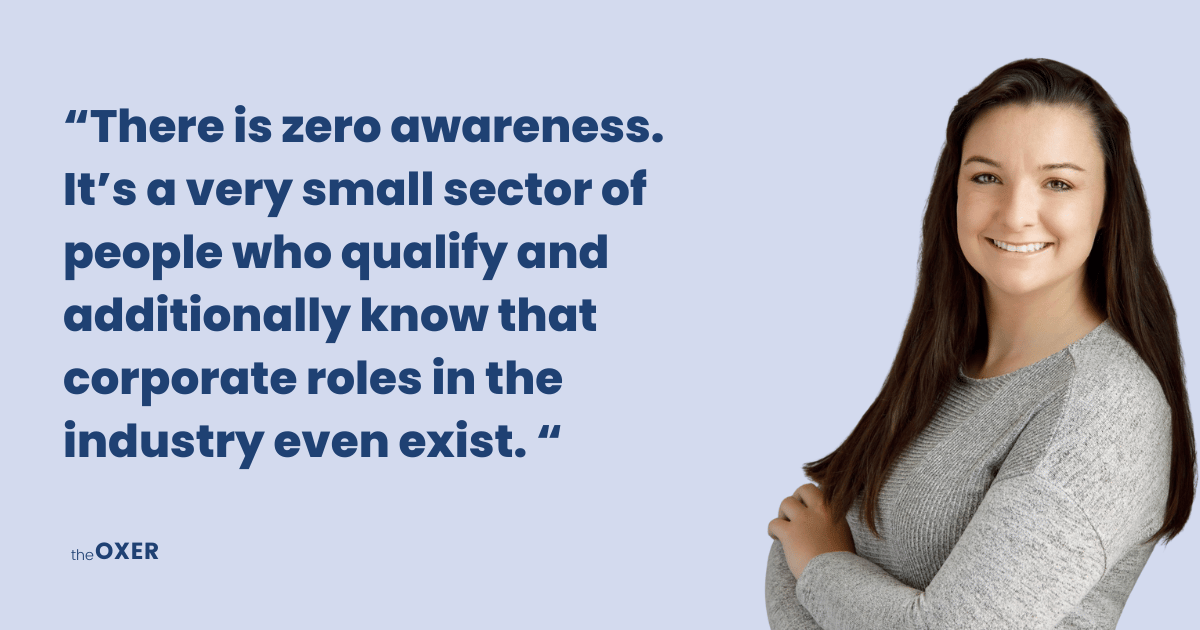
Noah: It seems then that there’s a large group of people who work in corporate equestrian but are not equestrians themselves. How did that happen? And why is it a problem?
Kaitie: Well when you think about it, asking an average person to step in and successfully run a horse show venue for instance is a bit like asking David O’Connor to design the next rocket for NASA.
They might bring a ton of technical skill to the table and be experts in their field, but they’re lacking the industry-specific training to allow them to really drive the growth and development of such an intricate program.
Noah: And what are some of these workplace tensions that you just mentioned?
Croix: When a high-level position is listed in a corporation, equine or not, tensions can be increased with employee worries about personal job security or individual advancement goals.
Additionally, if a company is hoping to hire before finalizing a termination, it has to keep the role confidential and silent. That’s where our confidentiality comes in and assists employers.
Noah: As a firm then, your responsibility to white-collar clients is to provide them with those who do have the technical skills but are also equestrians. How are you finding such candidates?
Croix: That’s part of what makes us unique.
We have an established database of screened, qualified candidates that we have checked references on, and in locations local to our offices we are able to drug test, background check, and provide benefits packages—with 401K—with our HR and payroll services.
We review resumes, interview candidates, and have in-depth conversations with references to determine qualifications and ideal roles.
Noah: Do they come to you or do you come to them?
Kaitie: Both! We tackle every angle to source the best candidates for the roles we represent.
Employees don’t feel the “requirement” to stay strapped into a role like when our parents were kids, and employers are not being taught leadership and management skills. It’s a double whammy causing an overall lack of industry success.
Croix Darwin
Noah: So since you both are on the ground recruiting specifically for the equine industry, you have a bird’s eye view of the industry.
Can you tell me the things about the industry that drive you insane that you feel like not enough people know about or are talking about?
Kaitie: Not allowing employees to have a personal horse.
I can’t tell you how many times I have heard employers say they do not want to entertain a candidate with their own horse because they know how horses are and they can’t have someone missing a day of work to deal with a colic or emergency.
This really is doing a massive disservice to the industry!
It’s completely possible to have your own horses on the side without them detracting from your work, and they’re missing out on a great pool of deserving, passionate young people by having a no-horse policy!
And those candidates deserve the chance to show that they can balance those responsibilities properly.
There’s an alarming number of employers who feel that they can dictate what their staff does outside of working hours, and that’s really got to change.
[Another frustration is] underqualified candidates applying for high-end jobs.
We appreciate the “go-getter” mentality, but if a position asks for five-plus years of specific work experience, and a candidate applies who has no work history and only just received their undergrad degree, it drives us bonkers!
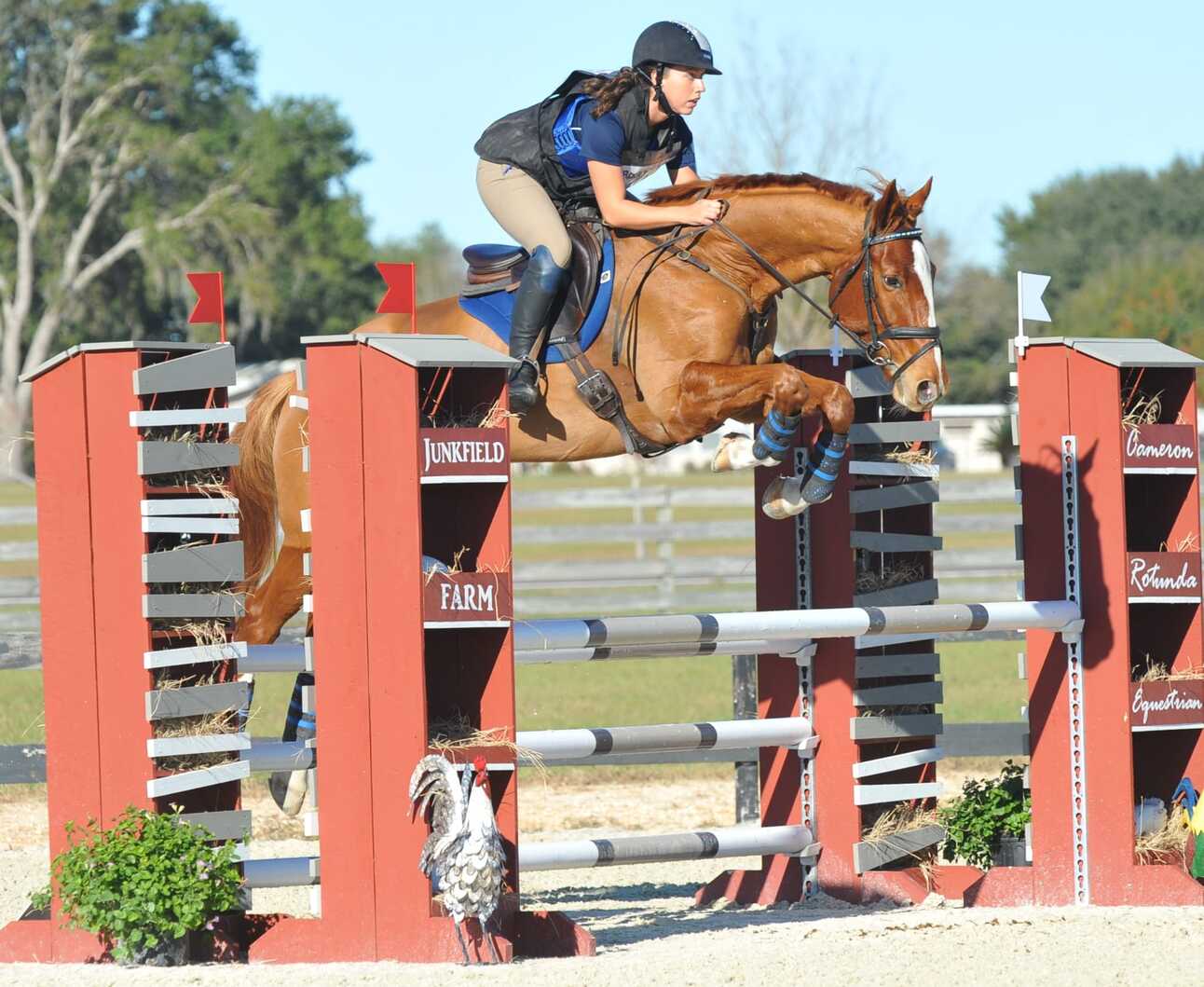
Kaitie can ride and have her job. Why should others not do the same?
Noah: That’s so surprising to hear, that there are a lot of companies who have a “no horse policy”! That’s akin to Duolingo not allowing their employees to use language learning apps, it doesn’t make any sense to me.
How is the industry supposed to get better if the people who work in it can’t ride horses?
Also, what have you noticed about employee retention in the equine industry?
Croix: Yes it’s exactly the same! We do this sport because we love the horses and at least the large majority want to be able to enjoy it along with work it.
It takes away all the enjoyment when it just becomes a job.
And you can get “just a job” anywhere.
There is NOTHING worse than burnout in not only your job but also your hobby. It’s kind of leading into your next question about employee retention.
Some barns, like Steffen Peters’s, have incredibly high retention. I just read this morning that his head groom has been there for seven years!
But the rise of “freelance” work has come from poor management from barn owners and a lack of work ethic from employees crashing into each other.
Both sides are lacking. Employees don’t feel the “requirement” to stay strapped into a role like when our parents were kids, and employers are not being taught leadership and management skills. It’s a double whammy causing an overall lack of industry success.
The USA does not have a grooms training program—the UK JUST started one recently—to help those who are in blue-collar roles in the public sector learn equine-related skills from the basics on up.
The USA is focused on developing barn staff already at the FEI level versus developing kids who really want to get started at the intro levels.
As far as corporate and white-collar equine roles, I would say retention is about the same as the non-equine corporate roles. People want to work from home/hybrid/remote but are starting to come back around the idea of being in the office and less hybrid and remote.
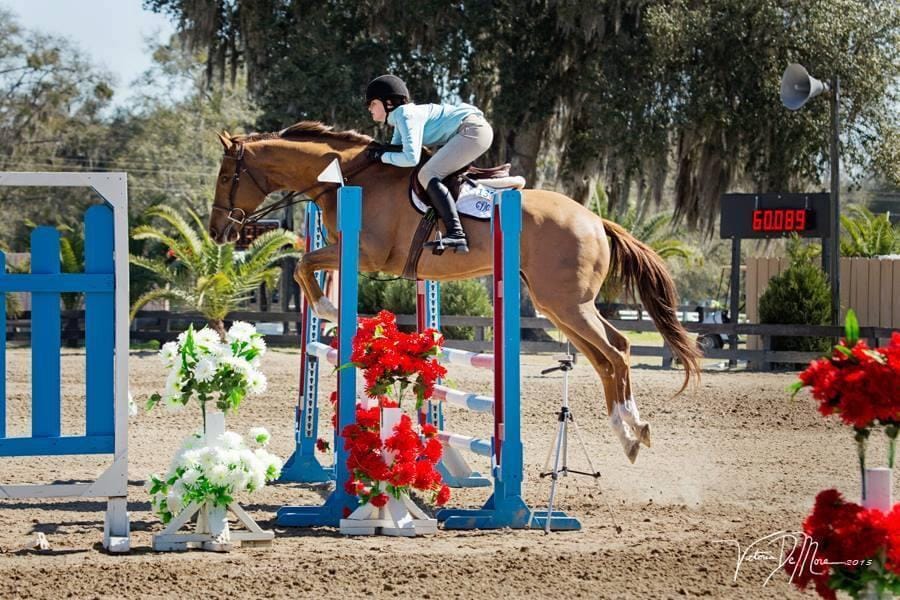
Noah: Why do you think there’s a lack of work ethic amongst many of the freelancers?
Croix: Oh let’s correct that. Freelancers do not equal poor work ethic AT ALL.
I think in the workforce there tends to be a drastically lower work ethic than there once was for a few reasons:
- More jobs available.
- Less requirements to have “longevity” and less transition on the resume.
- People aren’t as “career-minded” meaning they don’t feel as tied down to one forever job.
- People aren’t as willing to kill themselves for a paycheck so their tolerance is smaller.
Freelancers are entrepreneurs so they are tough, hardworking, and motivated people. They have to do it all, scheduling, books, taxes, travel, lack of stability.
My point there was that the age of freelancing is rising because fewer and fewer people are putting up with the job issues than before. So it’s easier to freelance/not be bound to one situation.
Noah: This is a theme we’ve been seeing all around the workforce outside of equestrian, and that theme is job hopping. The idea that you don’t have to work at the same company for as long as people used to.
Why do you think job hopping is so prevalent? And is it as prevalent in the equine world as it is in other industries?
Kaitie: There are a couple of pieces contributing to the job-hopping phenomenon, and it’s honestly quite a bit bigger than just this job or that!
Society as a whole has become quite preoccupied with instant gratification. And it leads to a “grass is always greener” mindset in the workforce, and in many other aspects of life. People just don’t seem willing to pursue the long-term path to success anymore, and I think if I had the answer to solving that problem I’d probably be messaging from my private island right now!
So all in all, I think it’s almost more prevalent in the equine industry because it’s hobby and passion and livelihood all rolled into one, and that makes the emotional draw of the “greener grass” that much more appealing.
Couple that with the poor management styles Croix was mentioning and it’s a perfect storm!
Employers who provide work-life balance, advancement potential, support in their dreams, and liveable wages tend not to have to endure the job hoppers nearly as much!
Noah: Can you talk more about what these poor management practices look like in the equine industry? Any specific examples that you can share?
Kaitie: While we can’t share specific examples, we’ve all heard the horror stories!
Employees working three months straight without a day off, employers screaming at their workers for minor grievances, expecting one person to do the job of 10 people, failing to pay the staff, and all sorts of HR-type violations that would never fly in the corporate world.
I feel like everyone in this industry for any length of time has had to endure at least one of “those” bosses, unfortunately!
Croix: We, at Equistaff, are advocates for both the candidate AND the employer to find a middle ground for all parties in an employment transaction.
It’s important to remember that no one is the villain here. Everyone in 2023 has desires and the market is currently working to find that balance.
We aim to educate both parties on successful management and employment skills
[What Kaitie said] is so true. We as an industry have to step up across the board to stop this. So many young equestrians are getting destroyed before they even get a chance to develop into their full talent. That just cannot continue or our industry will collapse.
Noah: Do you think what you’re seeing in America is happening to equestrians in other countries?
Kaitie: I do think that it has been a widespread issue in many areas. I know there are grooms unions and resources for management training for farm owners and such gaining traction in Europe.
The US would do well to follow in those footsteps!
Note: This interview was edited for concision and clarity.
Thank you so much for being great interviewees, Croix and Kaitie, and thanks to everyone who put in the time and effort to read this wonderful interview.
See you soon,
The Oxer by Pegasus
